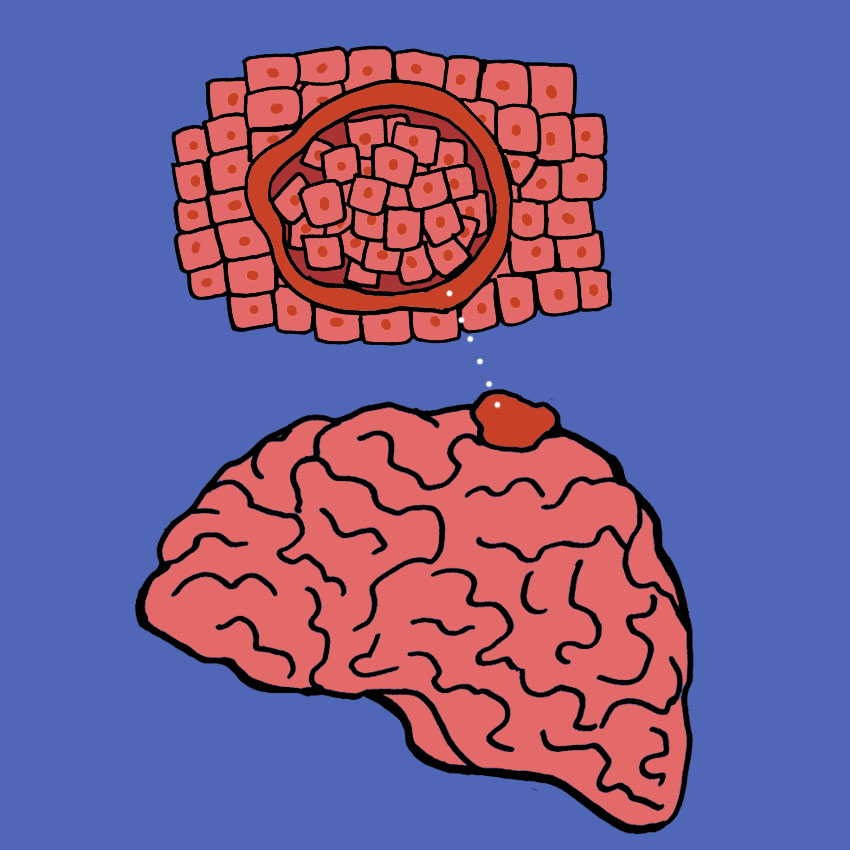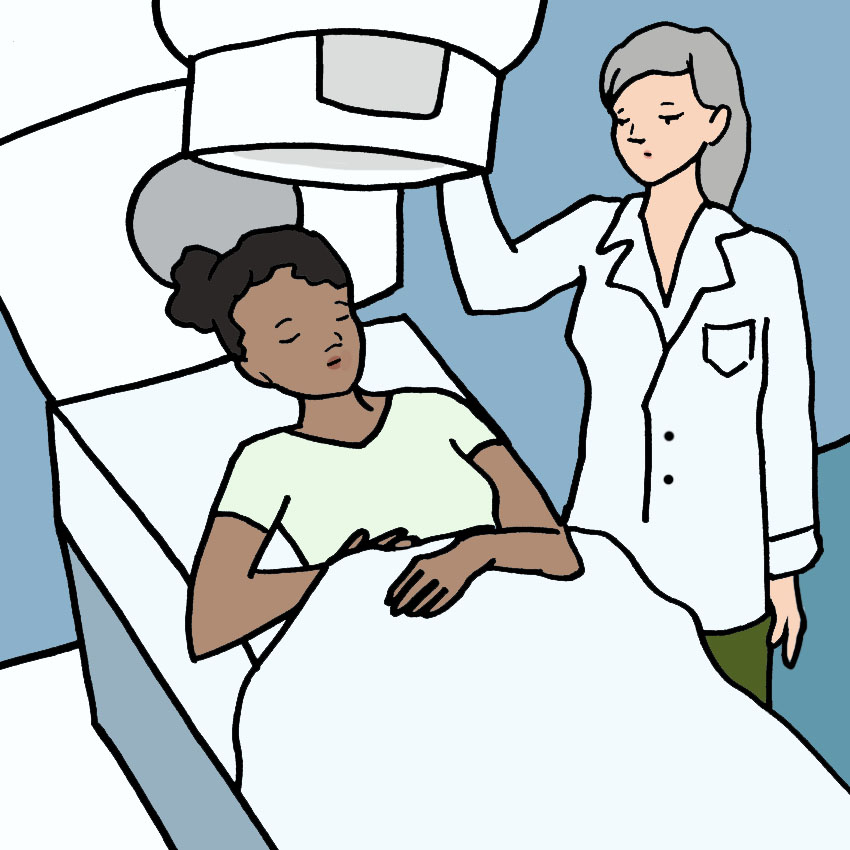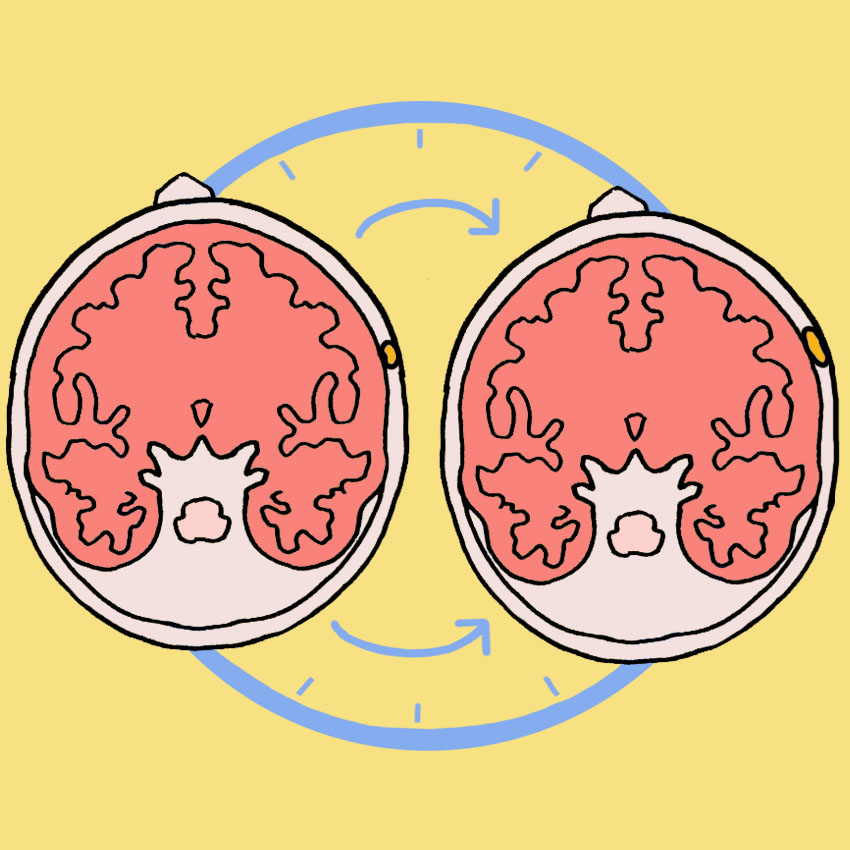
On every medical TV show, someone always gets a brain tumor. These are absolutely terrifying, obviously, and often fatal — at least on TV.
In reality, the most common type of brain tumor is known as a meningioma, and they're typically benign.
According to Johns Hopkins Medicine, "Meningioma is the most common type of primary brain tumor, accounting for about 30 percent of all brain tumors."
Around 85% of meningiomas are benign. Most benign meningiomas grow very slowly. They can go unnoticed for years because they often don't cause any symptoms until they become larger.
Meningiomas that are asymptomatic may not need immediate treatment. And when they do need treatment, benign meningiomas can usually be removed with surgery.
So what symptoms, if any, can meningiomas cause? As the tumors press on the brain, they may cause subtle signs.
Read below to find out more about benign meningiomas and some of their most common symptoms.
Photos: Pixabay / JerzyGorecki; Morgan Swofford for LittleThings
What Is A Benign Meningioma?

A meningioma is a type of tumor that grows from the layer of tissue that covers the spine and brain, known as the meninges.
Meningiomas grow on the surface of the brain and may squeeze or compress nerves and vessels in the brain.
According to UCLA Health, "Most are considered 'benign' because they are slow-growing with low potential to spread."
What Causes A Benign Meningioma?

It's unclear what causes benign meningiomas. What doctors do know is that there's something that alters cells in your meninges and makes them multiply out of control.
According to a New York Times article, "The only known causes for meningiomas, usually benign, are rare inherited genetic syndromes and therapeutic doses of ionizing radiation to the head and neck. "
What Are The Risk Factors?

Benign meningiomas can occur in people of any age, but they're most common in 40 to 60-year-old adults.
According to the Mayfield Clinic, "While malignant meningiomas occur in both women and men, benign meningiomas are three time[s] more common in women."
That's right, women are much more likely than men to have benign meningiomas.
Do Benign Meningiomas Cause Symptoms?

Meningiomas grow very slowly, and they often don't cause any symptoms at the beginning.
That said, the Mayo Clinic explains, "[I]n some instances, their effects on adjacent brain tissue, nerves or vessels may cause serious disability."
Symptom #1: Headaches

As you may guess, one of the most common symptoms of benign meningiomas is headaches.
Seeing as the mass presses into the brain, it makes sense that people would experience headaches with meningiomas.
The Mayo Clinic explains that these headaches may worsen over time.
Symptom #2: Vision Changes

If the meningioma compresses the optic nerves, it may cause vision changes or even blindness.
Early signs may include having double vision or a blurry field of vision, explains the Mayo Clinic.
Symptom #3: Hearing Issues

If a meningioma encroaches on the cerebellum, cranial nerves may become compressed, causing a loss of hearing, explains the Mayfield Clinic.
The Mayo Clinic also says that meningiomas can cause ringing in the ears.
Symptom #4: Loss Of Smell

Olfactory groove meningiomas are ones that grow between the brain and nose.
When tumors grow along these nerves, they can cause a loss of smell, explains the Mayfield Clinic.
Symptom #5: Motor Control Issues

One of the most obvious symptoms of benign meningiomas is a loss of control of motor functions.
The Mayo Clinic explains that this typically feels like weakness in the arms or legs, or a lack of control of certain body parts.
What To Do

If you have any of the above symptoms, and they're persistent or worsen over time, talk to your doctor.
Often, meningiomas aren't found unless your brain is scanned for other reasons, but these are some of the telltale signs.
Please SHARE this article with your friends if you think more people should know about this common type of brain tumor!




